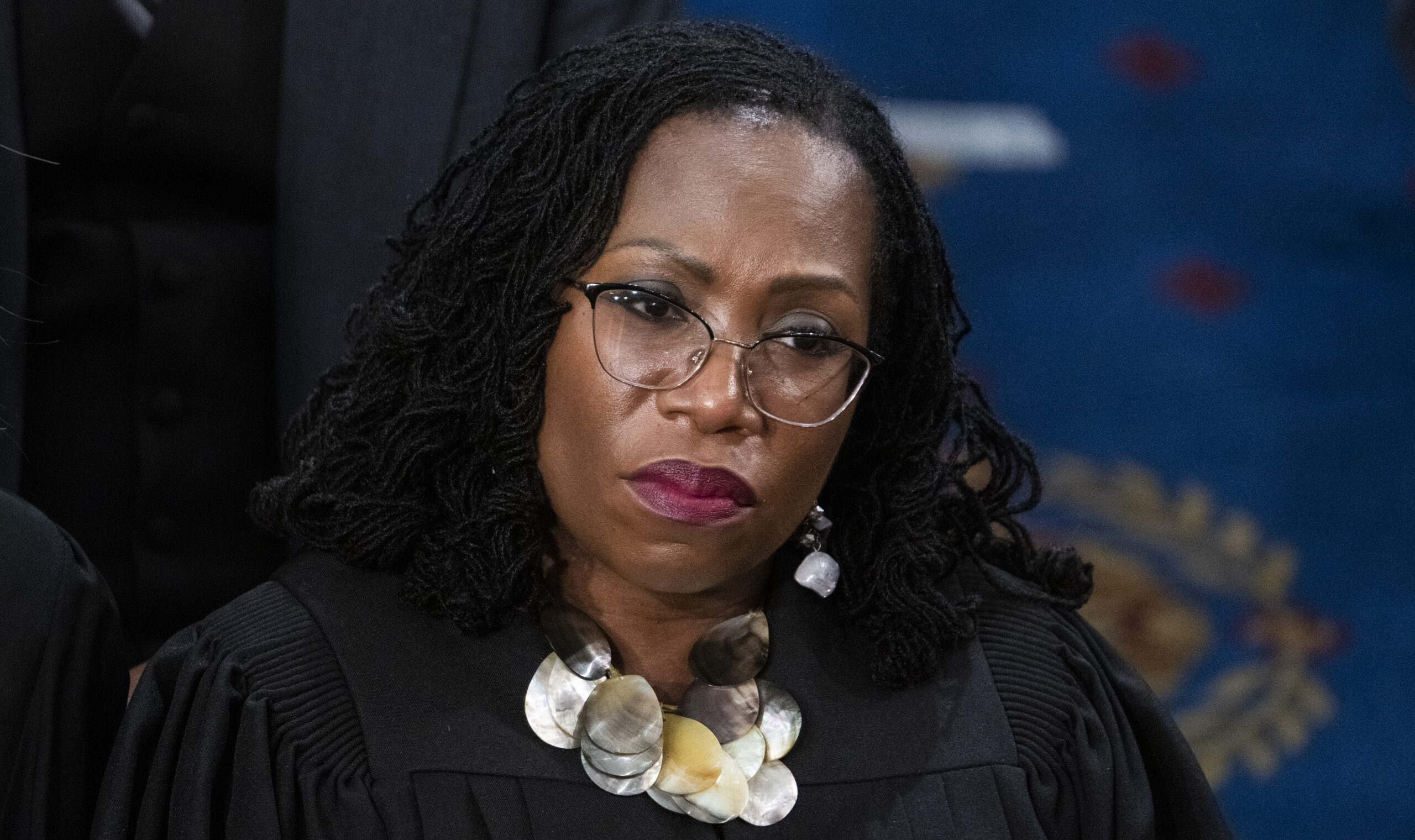


Loading the Elevenlabs Text to Speech AudioNative Player...
Democrats made opposition to Dobbs v. Jackson and the restoration of Roe v. Wade central to the 2024 presidential campaign. Meanwhile, Republicans largely avoided discussing the Supreme Court, a stark departure from recent elections. As Dan McLaughlin noted in National Review in the election’s aftermath: “One dog that didn’t bark was the courts. Republican Senate candidates made extensive hay in 2016 and 2020 about judges and fears of Court-packing. In the post-Dobbs environment, few Republican campaigns were willing to go there.”
While Democrats were smart to focus on Dobbs, given the popularity of Roe, Republicans squandered a critical opportunity. The judicial philosophy of the Court’s Democratic appointees is deeply radical, yet this extremism remains largely unknown to voters. Highlighting this radicalism could motivate even moderately liberal voters to support Republicans in order to prevent a left-wing takeover of the judiciary.
For example, racial preferences are deeply unpopular, with ballot initiatives to establish them failing even in liberal states like California. Yet in SFFA v. Harvard/University of North Carolina, the Court’s progressive bloc endorsed blatant discrimination against Asian American applicants. This reflects the attitudes of some Democratic politicians, who have engaged in hateful rhetoric against Asian Americans opposing racial preferences—a reality that would shock voters if it were widely known. Similarly, in Biden v. Nebraska, the same justices dissented from striking down President Joe Biden’s student-loan cancellation program, which is unpopular with voters and disproportionately benefits the wealthy.
In Alabama Association of Realtors v. Department of Health and Human Services, the conservative majority ended the CDC’s eviction moratorium, ruling that the agency lacked authority to rewrite landlord–tenant laws. The Democratic appointees dissented, arguing that a public health agency somehow held such sweeping power. This Kafkaesque policy forced small landlords to endure months of unpaid rent while tenants engaged in abusive and violent behavior. Most Americans reject the idea of a constitutional “right” to live rent-free and abuse landlords.
Other cases reveal the Court’s progressives embracing even more alarming logic. In United States v. Skrmetti, they likened Tennessee’s ban on puberty blockers, transgender surgeries, and cross-sex hormones for minors to taking aspirin and equated it with bans on interracial marriage. In City of Grants Pass v. Johnson, they argued that enforcing city bans on public camping violated the Eighth Amendment’s prohibition on cruel and unusual punishment—a provision meant to prevent barbaric medieval punishments, not to regulate homelessness policies. Even progressive leaders like California’s Gov. Gavin Newsom and San Francisco’s Mayor London Breed supported overturning the lower court, underscoring the extremism of the Court’s Democratic appointees.
President Donald Trump’s strong stance on illegal immigration helped secure his victory. Yet the Court’s progressives—joined by two conservatives—allowed Biden to end the Remain in Mexico policy, which required asylum seekers to await case decisions in Mexico. Even more troubling, in Hernandez v. Mesa, they argued that the family of a Mexican teenager killed by a U.S. Border Patrol agent in a cross-border shooting could sue the agent in U.S. courts. Similarly, in Sessions v. Dimaya, they invalidated a provision of immigration law allowing for the deportation of non-citizens convicted of violent crimes, deeming it unconstitutionally vague.
Left-leaning justices have also shown leniency toward violent criminals. In Kennedy v. Louisiana, they ruled that the death penalty for child rape where the victim did not die violated the Eighth Amendment. In Jones v. Mississippi, they dissented from a decision allowing life without parole for juveniles convicted of horrific crimes. In Brown v. Plata, they mandated the release of tens of thousands of California inmates, citing Eighth Amendment concerns, allowing violent offenders to return to society.
Yet, despite the Court’s progressives’ deeply unpopular positions, most voters remain unaware of a single case discussed above due to Republican inaction in highlighting them. By contrast, Democrats have successfully created near-universal awareness of Roe. Battles over judicial appointments are likely to dominate Trump’s presidency, with Democrats certain to use them to galvanize their base in the 2026 midterms.
Looking ahead, the stakes are even higher. The next generation of Democratic-appointed justices is poised to be even more radical. Constitutional scholar Ilya Shapiro notes that students at elite law schools often support silencing views held by most Americans, while openly supporting groups like Hamas—reflecting a radicalism far beyond today’s progressive justices. Associate Justice Ruth Bader Ginsburg’s friendship with the conservative Associate Justice Antonin Scalia was widely admired. Her successors would probably protest his mere presence on their campus.
Making judicial extremism a central issue can serve as a crucial bulwark for Republicans, consolidating support and retaining swing voters even amid economic downturns, international crises, or other periods of temporary upheaval that the left would exploit to fundamentally transform the nation in dangerous and irreversible ways. By doing so, Republicans can build a lasting “coalition of the sane” to secure long-term dominance and preserve the constitutional order. After all, exposing this extremism isn’t just good electoral strategy—it’s necessary to defend America’s founding principles.
